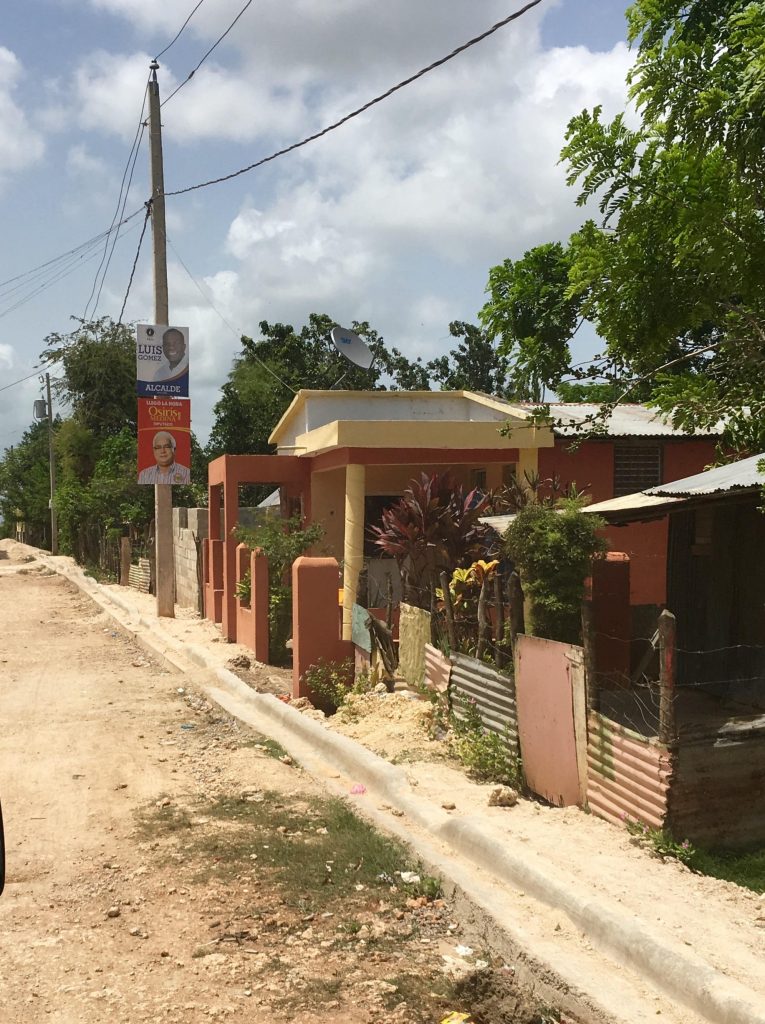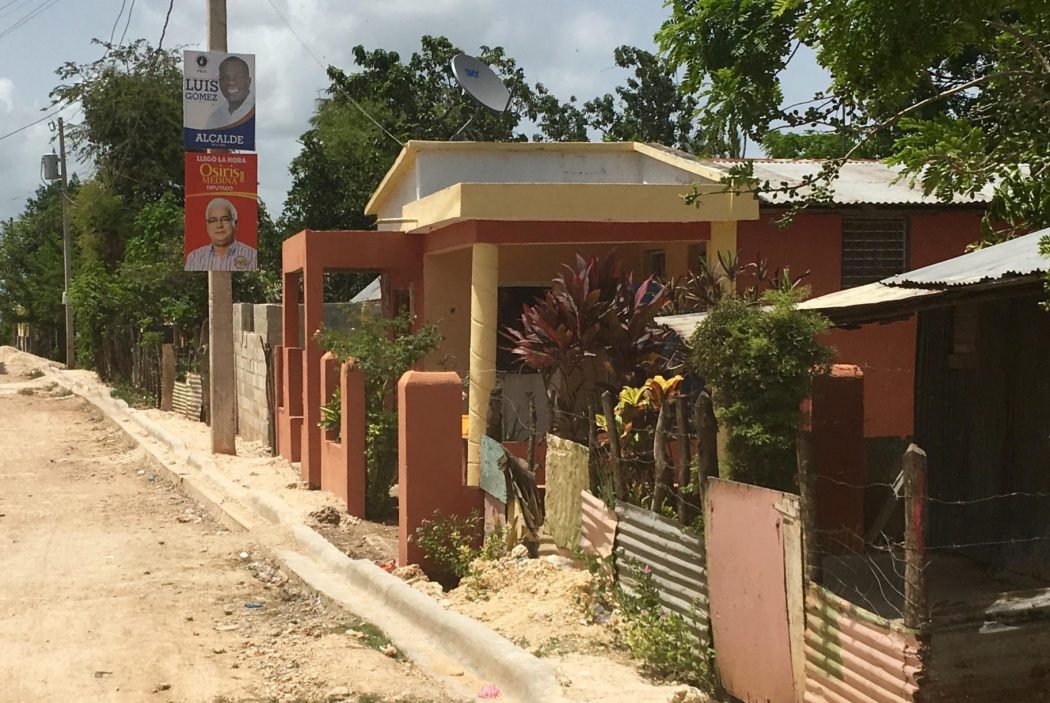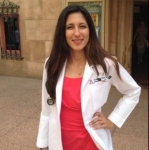As one of the students on the Global Health Certificate of Distinction track, I had the opportunity to go to the Dominican Republic for the medical trip this past summer. I knew going in that it would be a trip I would always remember. I think many of us did after listening to Dr. Beyda’s presentation during ITM.
I like to tell people that we were the clinic. We brought the luggage of medicine, tables, chairs, supplies, and took it into any walled and roofed space. Students were set up in pairs to take a history and perform a physical exam on patients. Afterwards, we would present to our attending, and they would talk us through determining the next step in diagnosis and treatment. On this trip, I learned from incredibly compassionate doctors. It was remarkable to observe how each physician and resident uniquely assessed and connected with their patient. These patient encounters created a huge impact on my perspective, and for that I will always remember them. Through tough environmental conditions, everyone demonstrated incredible teamwork in creating a clinic with a hard-working, supportive dynamic. In such a short amount of time, I learned so much about medicine, the culture that we shared space with, and how medicine and culture reacted when you put them together.
How does one process a 7-day life-changing medical mission trip? Throughout my life, writing has been a way for me to process and to learn. The UA COM-P narrative writing program offered me the chance to attend a writing workshop a few days after returning back from the trip.
In one of the prompts, I decided to write about the DR.
Prompt: More than anything, I wanted to tell the world…
More than anything I wanted to ask the world: what is the meaning of life to you
… If every day was about not having enough food, water;
… If you carried with you the stench of chronic sweat, fighting off a headache that would not quit, having too many health issues, never enough medication;
… If it meant not being able to strive past the 6th grade to then go to a job, where no matter how hard you worked, you were fixed in place?
I could see that this was his problem:
The world taught him to be a man, to fight, but with the guarantee that he would lose.
Love. Life. There is no universal meaning. Everyone inside and outside of this clinic carried with them a different interpretation. Love, to the woman I was examining, was to stay by his side and carry his children, even if meant another woman was also carrying his baby. Life, to her, was that if she did tell me about her husband’s affairs, her words would make her a pariah.
So I asked her all the medical questions, but what I really wanted to ask was:
What is easy for you?
What is life to you?
What is love to you?
If that child you are carrying is a son, what lessons will you teach your son? If that child is a girl, can you even promise her anything? Are you allowed to reflect on your life and tell your children—the next generation—to be any different from the society that you live in now?
Are you even allowed that freedom?
I guess it’s hard to do much of anything when you’re hungry, tired, and in pain.
Pain.
I learned that it was the most useful word I learned in Spanish on the trip. I could point anywhere on their body and ask, “Dolor?”
And they nod.
They just kept nodding.
The next day we would drive about an hour to the beach. On the drive over, I thought about the children laughing, playing, running, dancing in the backdrop of dirt roads, aluminum-roofed huts, and hunched dogs lethargically searching for anything.
I wondered if they could teach me to make the most out of any situation.
When I returned home, my sister on the phone asked me, “So on the last day you went to the beach, did you feel guilty?”
I let her know it was a good question. “No, because even in the clinic, when there was a breeze, it was as if we all stopped for just a second to take it in and appreciate it. So at the beach, with the ocean, it was just this appreciation overload. I lived so much in the present.”
There was a moment when I looked at the waves, really nothing else, not even the turquoise colors, not the white sand or the palm trees. Just the waves.
And I thought very simply that no matter the political system, the social construct, or the injustices that exist anywhere, these waves, this breeze, it moves.
It moves with us,
It moves regardless of us,
And if you let it, it can move for us.
I let it remind me to not forget the great hardships of others. When you have a beautiful moment in this life, you live in it. You savor it, you let it uplift you, and then you share it with someone else.
In the clinic at the DR, I relearned from our patients what it meant to be a person in this world, the struggles and hardship that could possibly exist, the deep resilience we are capable of, and just how naturally beautiful we all are.
So if anything, more than anything, I’d tell the world:
To remember and be open to how much beauty there exists in this world.
To be inspired to be part of this world’s beauty.
Sara Pousti is part of the 2019 class at The University of Arizona College of Medicine – Phoenix. She graduated in 2014 from The University of Arizona with a BS in physiology and a minor in creative writing. Sara has a passion for non-fiction and fiction writing, nature, and global health. Her other interests include swimming, hiking, and creating new cooking recipes.


